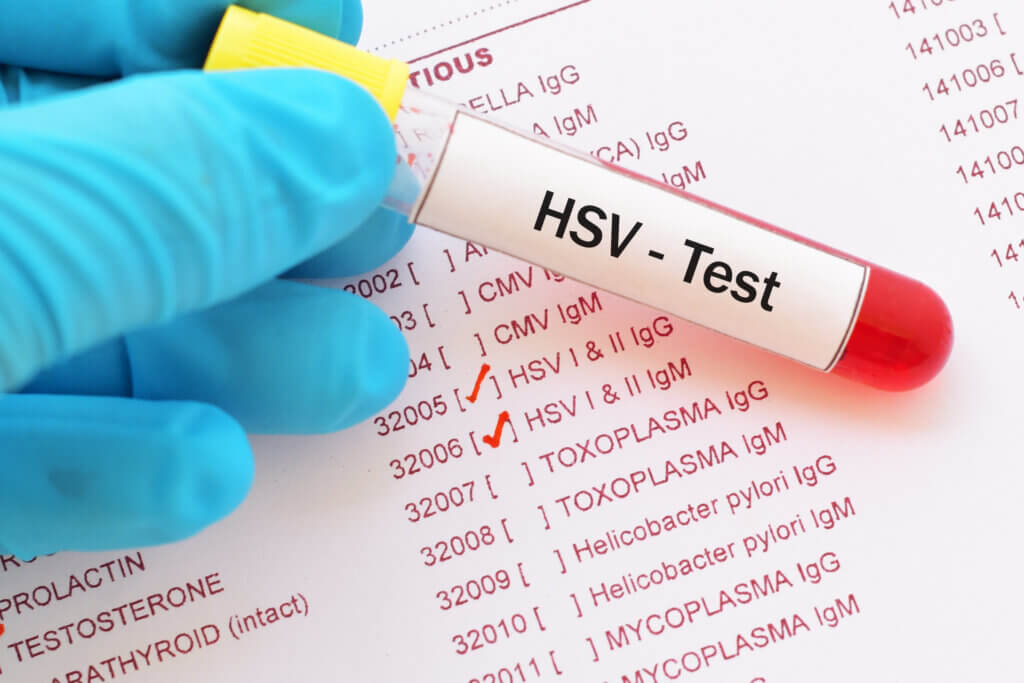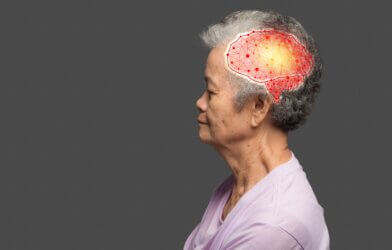Older adults are twice as likely to develop dementia if they’ve been infected with the herpes simplex virus, a new 15-year study concludes.
Dementia is a growing health crisis, with over 55 million cases globally as of 2023. Alzheimer’s disease accounts for 60-80% of cases. With aging populations, experts expect a drastic rise in cases over the next few decades unless preventive strategies are discovered. Researchers are investigating whether infections earlier in life may contribute to later dementia, including HSV.
Connecting Herpes To Dementia
Herpes simplex virus infects about 80% of adults globally. Often contracted in youth, it stays in the body for life. Many people associate HSV with “cold sores” around the mouth, prompted by HSV-1. However, HSV-2 typically causes genital herpes. After initial infection, HSV lies dormant in nerve cells but may periodically reactivate, causing painful sores before becoming dormant again. Standard blood tests can detect antibodies signaling past herpes infection.
Swedish researchers tested blood from 1,002 dementia-free 70-year-olds for HSV antibodies, tracking diagnoses over 15 years. They statistically analyzed whether detectable HSV antibodies signaled higher dementia risk, while accounting for other risks like less education and a gene called APOE-e4. About 80% of participants had herpes antibodies, slightly higher among those later diagnosed with dementia.
HSV-positive adults were over twice as likely to develop dementia. Specific indicators of viral activity like high antibody levels and HSV-1 antibodies were not linked with extra risk.
The study shows that just the presence of antibodies signals elevated dementia risk. Viral levels weren’t linked, suggesting that reactivated or recurring symptoms aren’t necessary to incur brain impacts.
Link Is Likely Indirect
This study avoids limitations of much previous research by tracking a large group of the same age over 15 years. Still, more research is needed on whether antivirals could help. Only 6% of the HSV-positive participants had taken them, which is too few to draw conclusions.
Other herpesviruses like cytomegalovirus were similarly unconnected to dementia. Still, the findings raise concerns that nervous system infection may have lasting consequences for brain health.
“What’s special about this particular study is that the participants are roughly the same age, which makes the results even more reliable since age differences, which are otherwise linked to the development of dementia, cannot confuse the results,” explains co-author Erika Vestin, a medical student at Uppsala University, in a statement.
It’s important to note that these findings absolutely do not prove herpes causes dementia directly. An indirect link is likely more complex. HSV might spark inflammatory processes contributing over decades. Or it may enter the nervous system during reactivation, gradually causing neurological changes.
While many puzzles remain, experts increasingly suspect infections like herpes as unlikely accomplices in dementia. “The results may drive dementia research further towards treating the illness at an early stage using common anti-herpes virus drugs, or preventing the disease before it occurs,” adds Vestin.
The research is published in The Journal of Alzheimer’s Disease.












